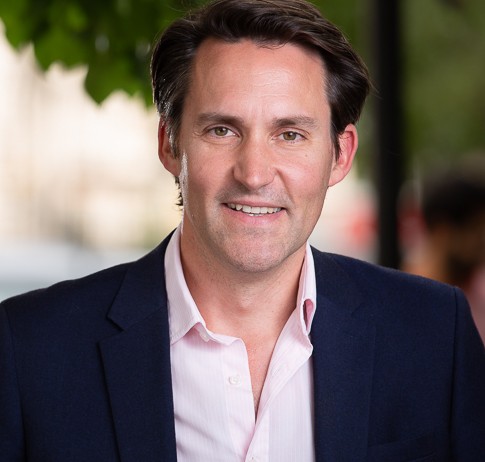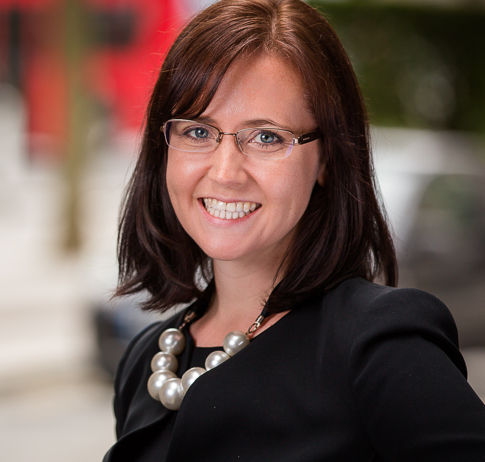Article
Are family offices emerging as competitors to venture capital?
8 February 2024 | Applicable law: EU | 6 minute read
“This is a fascinating time in private capital markets,” says James Shaw, a partner in Withers' London office and Global Head of Withers tech. “I’ve been working with emerging high growth companies for more than 20 years, helped establish and grow the venture ecosystems in multiple countries, helped several VC accelerators, and have helped grow over a dozen unicorns. Until relatively recently, nobody was talking about family wealth – now it’s seen as a powerful driver of innovation.”
Until relatively recently, nobody was talking about family wealth – now it’s seen as a powerful driver of innovation.
In the past few years James has done more and more work with Withers colleagues who specialise in advising family offices, whether this is to support founders of successful tech start-ups, or the next generations of existing family offices. The Withers family office team, too, have noticed a shift as younger family members become involved in investment strategy.
“Many of the family offices we work with have been set up in the past 25 years and they are mindful of staying relevant in the 21st century,” says Claire Harris, head of Withers' family office group. “That means growing new businesses, particularly those that have the potential to have a wider social or environmental impact.”
Family funds have both professionalised and proliferated, with an estimated 10,000 family offices managing trillions of dollars of wealth.
Family funds have both professionalised and proliferated, with an estimated 10,000 family offices managing trillions of dollars of wealth1. In doing so they have shaken up the wider market, actively investing in venture capital funds and even beginning to compete with venture capital for investments, and in some cases offering a more attractive funding option.
“Founders may feel that their interests align more closely with those of a family or founder's fund than a traditional VC fund, which has its own more rigid schedule and demands,” says James.
That said, venture capital firms still retain an edge over families in other ways; the advantages and disadvantages of each complementing one another to make a broader range of support available to innovative new companies.
Five key differences
1) Patience
The most obvious distinction between family offices and venture capital firms is the longer view taken by families.
Unlike VC funds, which operate on a set investment cycle, family offices seek to benefit generations to come. They are not obliged to invest if they believe the market is overvalued; and when they do, they are often more interested in long-term, sustainable growth than turning a profit within five to ten years.
“Private equity is sitting on over $1 trillion in dry powder. That money will be deployed, no matter what,” says James. “With most markets trading at all-time highs, doing nothing is often the best strategy, but VC funds tend not have that luxury because of the way they are constituted.”
As reported in Sifted recently2, the European Investment Fund – one of Europe's most prolific limited partners in European VC funds – is demanding that their VC funds ramp up investment.
At times, family funds may be overly cautious and miss opportunities that a VC firm would jump into3. However, their ‘patient capital’ can support start-ups throughout a whole lifecycle, potentially also yielding greater returns over time.
2) Passion
While modern family offices operate very professionally, the decision-makers are less glued to their spreadsheets than results-driven venture capitalists.
The majority of family funds originate from operating businesses, and families often feel it makes sense to invest in ventures in the same sector. This means they can offer not just capital but contacts, insight and experience to their chosen projects – adding real non-monetary value.
“One visionary tech founder we have acted for over many years sold his company for several billion dollars and founded his own early-stage tech fund to back other exceptional founders across the US and Europe,” says James. “He is a very high profile figure and has now invested into more than 40 technology companies.”
Ultimately, if the passion of the source of capital is diluted by fiscal structures and/or intermediaries driven by economic returns, then the original drivers for investment are weakened. The flipside is that the closer one is to the source of capital, the greater the empathy there is for the technology or solution. This is precisely why Plural4 (the founders' fund created by the likes of Taavet Hinrikus, Sten Tamkivi and Ian Hogarth) is successfully disrupting the venture ecosystem.
Withers is also called on to support family offices’ investments in collectibles, from art to aircraft to sports teams. Returns on these investments are variable, but family members argue that it makes sense to diversify their portfolios – and enjoy their wealth in their lifetime.
3) Personality
Contrary to what might be expected, the Withers team believe venture capitalists are just as likely as families to source deals through their network of contacts. Both kinds of organisation also prioritise finding founders who can deliver results5.
However, when it comes to making their final decision, family funds are more likely to cite personal relationships as a key factor.
“Family offices want to know that they can trust this person, rather than focusing on the track record of the company,” says Claire. “It is more about personal trust and the business relationship, which can lead to fantastic partnerships, but also to increased disappointment if an investment doesn’t pan out.”
However, where an early investment has gone well, the firm has seen family funds becoming so attached to a venture that they are reluctant to bring in follow-on funding, which narrows its options for growth6. A family office's different investment outlook can also pose potential issues to portfolio companies when they try to raise further rounds of finance from VCs. The two sometimes just don't fit.
To head off tension down the line, Withers ensures that families and the founders they are investing in discuss their objectives and the family’s level of involvement, thinking through different scenarios and ensuring alignment in growth aspirations where possible.
4) Philanthropy
“Sustainability or impact is often a much bigger investment driver for family offices than VCs. The climate, circular and blue economy are particularly popular, as are the future of food, healthcare and life sciences innovations.”
Family offices are prolific when it comes to philanthropy, giving away vast sums each year to good causes. They bring the same sense of responsibility to bear on their investment strategy, says James.
“Sustainability or impact is often a much bigger investment driver for family offices than VCs. The climate, circular and blue economy are particularly popular, as are the future of food, healthcare and life sciences innovations.”7
That said, there is no doubt that environment, sustainability and governance (ESG) factors are increasingly important to VC funds’ strategy, but their primary focus will often always be return on investment (ROI). This can make their investment choices easier, compared with those of family offices, who must weigh the likely impact of each project with ROI, while also navigating family members’ different views and priorities.
5) Professionalism
As family offices continue to evolve, the Withers team expects the largest and most efficient to become as well-known as big investment firms over the next decade. There will also be a shift in VCs, driven by the likes of Plural. The Withers team ultimately believe the gap between the two sources of capital will close and there will be a blurring of lines as the VCs readjust their primary focus and family offices become more sophisticated.
For now, though, under 5 per cent of family funds are institutionalised, and they are still seen by some as inefficient and fragmented in comparison to VC firms, which boast larger teams and robust governance8. The collapse of Bill Hwang’s family office, Archegos Capital Management, did not aid credibility.
“Family operations are also highly exposed to succession issues: only 25 per cent achieve a successful transfer to the next generation,” remarks Claire. “With good advice and good communication, we expect that to improve, but for now venture capital is seen as more predictable.”
One sign that the two groups may be converging, however, is the number of professionals moving from one to the other. In one high-profile hire, Michael Dell’s family office recruited the former head of Goldman Sachs’ investment bank, while the MD of venture investing at Laurene Powell Jobs’s Emerson Collective joined from VC firm Andreessen Horowitz.
“It’s not a question of one being stronger than the other,” concludes James. “Each is good in different situations, which is creating a richer landscape, and whilst accessing family office capital can still be a challenge for some founders, our experience and contacts make us ideally placed to help!"
- https://www.ey.com/en_us/tax/family-office-advisory-services/ey-americas-family-office-guide
- https://sifted.eu/articles/eif-2024-vc-europe-interview
- https://www.pwc.com/gx/en/services/family-business/family-office/family-office-startup-investments-worldwide-2023.html
- https://sifted.eu/articles/plural-raises-second-fund
- https://hbr.org/2021/03/how-venture-capitalists-make-decisions
- https://www.forbes.com/sites/forbesfinancecouncil/2023/06/08/family-offices-are-shaking-up-private-equity-venture-capital/
- https://www.gsam.com/content/dam/pwm/direct-links/us/en/PDF/onegs_familyoffice_eyesonthehorizon.pdf?sa=n&rd=n
- https://thefopro.com/family-offices-are-professionalizing-though-families-are-slow-to-follow/
Backing innovation
Where private capital and powerful ideas meet


